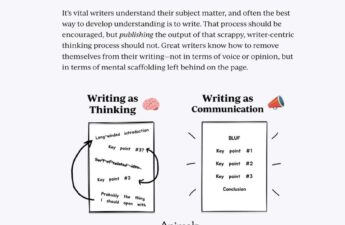If you’re a student looking for ways to enhance your academic performance, look no further! In this article, you’ll discover the top AI tools that can revolutionize your study routine. From smart virtual assistants that can help you organize your schedule and assignments to advanced plagiarism detectors that ensure your work is original, these AI tools are designed to make your life as a student easier and more efficient. Get ready to embrace technology and take your learning experience to the next level!
Understanding AI and its Applications in Education
Artificial Intelligence (AI) has become an integral part of our daily lives, with its applications ranging from voice assistants to autonomous vehicles. In the field of education, AI has the potential to revolutionize the learning experience by providing personalized education and automating mundane tasks. To fully comprehend the significance of AI tools for students, let’s explore what AI is, how it works, and its current and potential applications in education.
Defining AI
AI refers to the simulation of human intelligence in machines that are programmed to think, learn, and problem-solve like humans. It involves the development of algorithms and technologies that enable computers to perform tasks that traditionally required human intelligence. The goal of AI is to mimic human cognitive processes, such as perception, reasoning, learning, and problem-solving, while also being adaptable and self-improving.
Explaining how AI works
AI systems rely on vast amounts of data and sophisticated algorithms to analyze patterns, make predictions, and perform tasks. Machine Learning (ML) is a subset of AI that involves creating models and algorithms that allow machines to learn and make predictions based on data. ML models use historical data to recognize patterns and make accurate predictions or decisions in new situations. Deep Learning (DL) is a subfield of ML that imitates the workings of the human brain by using artificial neural networks to process and analyze large amounts of data.
Discussing potential and current applications in education
AI has the potential to greatly benefit the field of education. It can enhance the learning experience, provide personalized education, facilitate time management, and automate mundane tasks. AI tools can assist students in various ways, such as study and homework aid, learning assistance, paper writing, and project management.
Importance of AI Tools for Students
AI tools offer numerous advantages to students, making them invaluable resources in the learning process.
Enhancement of the learning experience
AI can create immersive learning experiences through virtual reality and augmented reality applications. These technologies can transport students to different environments, allowing them to explore and interact with concepts in a more engaging and realistic manner. By creating a stimulating and interactive learning environment, AI tools enhance comprehension and retention of information.
Personalized education
One of the greatest strengths of AI tools is their ability to provide personalized education. By analyzing individual learning patterns, AI algorithms can adapt content, pace, and instructional methods to the unique needs and preferences of each student. This tailored approach ensures students receive personalized support and instruction, enabling them to reach their full potential.
Facilitation of time management
Students often struggle with managing their time effectively, resulting in stress and missed deadlines. AI tools can help students organize their schedules, set reminders, and track progress on assignments and projects. By automating these tasks, students can focus more on their learning and reduce the burden of time management.
Automation of mundane tasks
AI tools can automate mundane tasks such as grading assignments, generating quizzes, and providing feedback on student work. This automation saves teachers valuable time and allows them to allocate more resources to individual student needs. Additionally, students can receive immediate feedback, enabling them to identify areas for improvement and make necessary adjustments.

Categories of AI Tools for Students
AI tools for students can be broadly categorized into four main categories: study and homework aid, learning assistance, paper writing, and project management. Each category offers unique functionalities, catering to different aspects of student learning.
AI tools for study and homework aid
These tools provide assistance in studying and completing homework assignments. They may include features such as step-by-step problem solving, text and document analysis, and access to a vast database of educational resources.
AI tools for learning assistance
Tools in this category offer support in learning new concepts. They often utilize adaptive learning algorithms to adjust content and instructional methods based on the student’s abilities and needs. This helps students grasp complex concepts at their own pace.
AI tools for paper writing
These tools assist students in the writing process, offering features such as grammar and plagiarism checks, paraphrasing, and generating citations. They can aid in improving the quality and efficiency of writing assignments.
AI tools for project management
Tools in this category help students organize and manage their projects effectively. They offer features such as task tracking, collaboration tools, and deadline reminders to ensure successful project completion.
Best AI Study and Homework Help Tools
Several AI tools have gained popularity for their effectiveness in assisting students with their study and homework. Let’s explore some of the top tools in this category:
Overview of Brainly
Brainly is a global online learning community where students can ask questions and receive answers from peers and educators. Its AI-powered platform enables students to collaborate, share knowledge, and find solutions to academic problems. With millions of active users, Brainly provides a vast knowledge base for students seeking assistance.
Features of Photomath
Photomath is an AI-powered calculator app that can solve math problems by simply pointing the camera at the equation or handwriting. It provides step-by-step explanations and solutions, making it an excellent tool for students struggling with math concepts.
Understanding how Mathway works
Mathway is another popular math problem-solving tool that covers a wide range of mathematical topics. Students can input their math problems, and Mathway’s AI algorithm provides both the solution and a detailed explanation of the steps involved.
Advantages of Socratic by Google
Socratic is an AI-powered app by Google that helps students with their homework. Students can take a photo of a question or type it manually, and Socratic provides step-by-step explanations and helpful resources to understand the concept behind the problem.

Leading AI Paper Writing Tools
Writing essays and research papers can be challenging, but AI tools can assist students in the writing process. Here are some of the leading AI paper writing tools:
Overview of EssayBot
EssayBot is an AI-powered writing assistant that helps students in generating quality essays. By analyzing the provided topic, EssayBot provides suggestions, paraphrases, and generates a structure for the essay. It can save students time and effort in the initial stages of the writing process.
Features of Ref-n-Write
Ref-n-Write is an AI tool that assists students in academic writing, particularly in generating citations and references. It provides a database of academic phrases and templates that students can use to enhance the clarity and coherence of their academic writing.
Understanding how Quillbot works
Quillbot is an AI-powered writing tool that assists students in paraphrasing and expanding their writing. It employs advanced algorithms to comprehend and rephrase text, allowing students to generate unique and well-structured content.
Best AI Learning Assistance Tools
AI tools for learning assistance play a crucial role in supplementing classroom education. Here are some of the top tools in this category:
Understanding the power of Quizlet
Quizlet is an AI-powered flashcard and learning tool that helps students memorize information. It allows students to create and access a variety of interactive learning materials, including flashcards, quizzes, and study sets. Through its adaptive learning technology, Quizlet tailors the learning experience to the individual student’s progress and needs.
Features of Duolingo
Duolingo is a widely popular AI-powered language learning platform. It offers interactive lessons, quizzes, and exercises in various languages. Duolingo’s AI algorithms adapt to the student’s learning style and provide personalized feedback and recommendations to enhance language acquisition.
Overview of Coursera’s AI-powered courses
Coursera, a leading online learning platform, offers AI-powered courses that utilize machine learning algorithms to enhance the learning experience. These courses adapt to individual student needs by providing personalized assessments, feedback, and content recommendations.
Top AI Tools for Project Management
Efficient project management is crucial for student success. Here are some top AI tools that aid in project management:
Benefits of Trello
Trello is a popular AI-powered project management tool that allows students to organize and track their projects. It offers a visual interface with boards, lists, and cards, enabling students to manage tasks, set deadlines, and collaborate effectively with team members.
Functions of Slack
Slack, an AI-powered collaboration platform, enables students to communicate and collaborate easily on projects. It provides features such as channels, direct messaging, and integration with other tools, fostering efficient teamwork and communication.
Capabilities of Asana
Asana is an AI-powered project management and task tracking tool. It helps students break down projects into actionable tasks, assign responsibilities, set deadlines, and track progress. With its intuitive interface and AI-powered features, Asana enables students to stay organized and meet project objectives effectively.
Accessing AI Tools
AI tools for students can be accessed through various channels, including online platforms, mobile applications, and browser extensions.
Using online platforms
Many AI tools offer web-based platforms that students can access through internet browsers. These online platforms provide a wide range of functionalities and often require students to create an account to access personalized features.
Downloading mobile applications
Most AI tools also offer mobile applications that can be downloaded and installed on smartphones and tablets. These mobile apps allow students to access AI tools on the go and offer a seamless learning experience across devices.
Leveraging browser extensions
Some AI tools offer browser extensions that can be added to internet browsers, such as Google Chrome or Mozilla Firefox. These extensions integrate AI functionalities directly into the browser, making it convenient for students to access AI tools while browsing the web.
Limitations and Concerns Regarding AI Tools
While AI tools offer numerous benefits, it is essential to be aware of their limitations and potential concerns.
Privacy concerns
The use of AI tools often involves the collection and analysis of personal data. Students must understand the privacy policies of AI tools and ensure that their data is handled securely. It is essential to choose reputable AI tools that prioritize user privacy and data protection.
Access and equity
The availability of AI tools may be limited by factors such as internet access, device availability, and affordability. These limitations can create disparities among students, hindering their access to AI tools and the benefits they offer. It is crucial to address these access and equity issues to ensure equal opportunities for all students.
Dependency risks
While AI tools can be valuable learning aids, students should avoid becoming overly dependent on them. Overreliance on AI tools may hinder critical thinking skills and creativity. It is essential to strike a balance between using AI tools for assistance and developing independent learning abilities.
Future of AI Tools in Student Learning
As AI continues to advance, the future of AI tools in student learning appears promising. Here are some predictions and potential impacts:
Prediction of AI tool development
AI tools are expected to become even more sophisticated, offering advanced features such as natural language processing, adaptive learning, and emotional intelligence. These developments will allow AI tools to provide more personalized and engaging learning experiences for students.
The Role of AI in the future of education
AI is set to play a significant role in the future of education. It can help address challenges such as overcrowded classrooms, a lack of individualized support, and instructor workload. AI tools have the potential to assist teachers in delivering personalized education to every student, augmenting the traditional classroom experience.
Potential impacts on students’ learning practices
The integration of AI tools may lead to changes in students’ learning practices. With access to personalized education, students may become more self-directed in their learning, taking ownership of their educational journey. AI tools can also foster collaborative learning, as students can connect and collaborate on projects beyond the boundaries of the physical classroom.
In conclusion, AI tools provide immense opportunities for students to enhance their learning experiences, receive personalized education, and automate mundane tasks. With the availability of AI tools across various categories, such as study and homework aids, learning assistance, paper writing, and project management, students can take advantage of these resources to maximize their learning potential. While AI tools have their limitations and concerns, addressing privacy, access, and dependency risks can ensure their responsible use. With continuous advancements and future developments, AI tools are poised to reshape student learning, offering a more personalized and engaging educational experience.



